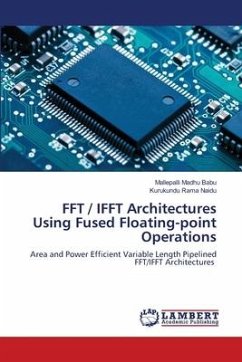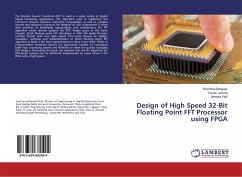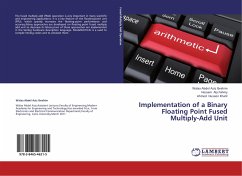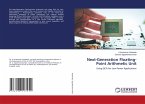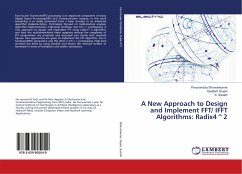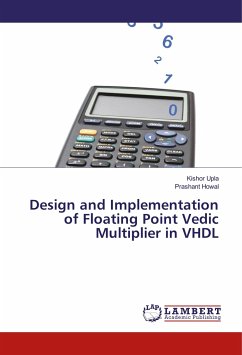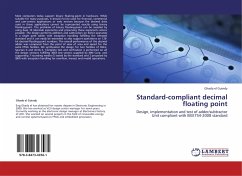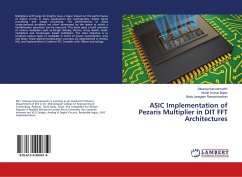Fast Fourier Transform (FFT) architecture is one of the critical modules used in the fields of signal processing and communication systems for various applications. These architectures are designed using pipelined fused floating-point operations on complex data using IEEE standard-754 format. FFT architecture uses a three-stage pipelined butterfly structure with pipelined fused floating-point units (FFPU) and multiplexers to produce the desired low-power and area-efficient architectures. Variable length floating-point FFT architecture is implemented by considering the combinations of radix-23 / 22 / 21 butterfly operations to produce 2/4/8/16/32/ 64/128/256/512/1024(1K)/2048(2K)/4096(4K) point FFT sizes. This is achieved by using fused floating-point units, an FFT size selector, a twiddle factor generator, and complex multiplier sub-blocks that are controlled by a control unit.
Hinweis: Dieser Artikel kann nur an eine deutsche Lieferadresse ausgeliefert werden.
Hinweis: Dieser Artikel kann nur an eine deutsche Lieferadresse ausgeliefert werden.

